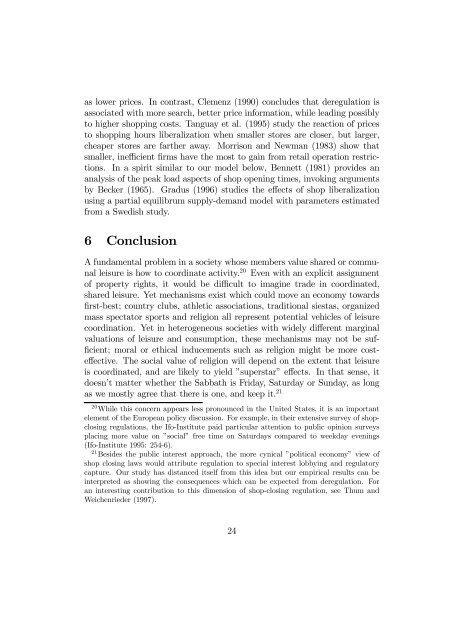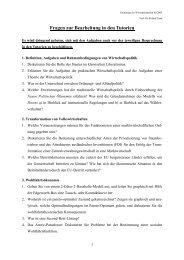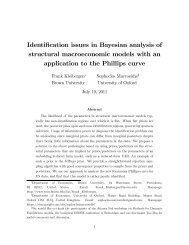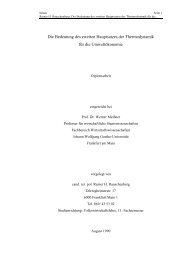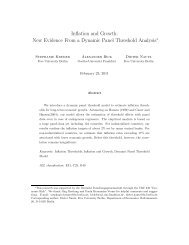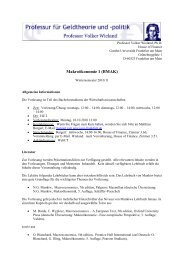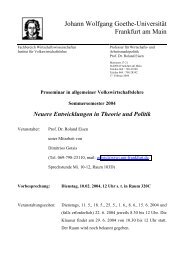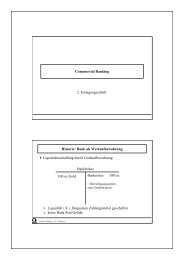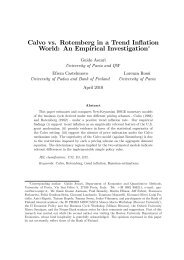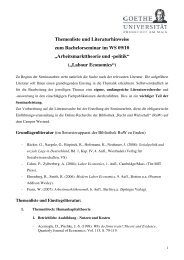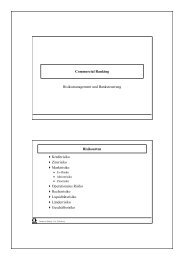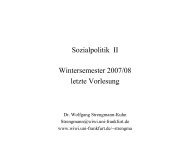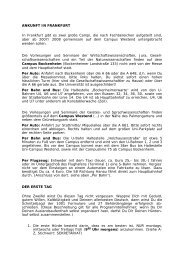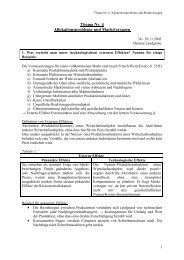Michael Burda - Sciences Po Spire
Michael Burda - Sciences Po Spire
Michael Burda - Sciences Po Spire
Create successful ePaper yourself
Turn your PDF publications into a flip-book with our unique Google optimized e-Paper software.
as lower prices. In contrast, Clemenz (1990) concludes that deregulation is<br />
associated with more search, better price information, while leading possibly<br />
to higher shopping costs. Tanguay et al. (1995) study the reaction of prices<br />
to shopping hours liberalization when smaller stores are closer, but larger,<br />
cheaper stores are farther away. Morrison and Newman (1983) show that<br />
smaller, inefficient firms have the most to gain from retail operation restrictions.<br />
In a spirit similar to our model below, Bennett (1981) provides an<br />
analysis of the peak load aspects of shop opening times, invoking arguments<br />
by Becker (1965). Gradus (1996) studies the effects of shop liberalization<br />
using a partial equilibrum supply-demand model with parameters estimated<br />
from a Swedish study.<br />
6 Conclusion<br />
A fundamental problem in a society whose members value shared or communal<br />
leisure is how to coordinate activity. 20 Even with an explicit assignment<br />
of property rights, it would be difficult to imagine trade in coordinated,<br />
shared leisure. Yet mechanisms exist which could move an economy towards<br />
first-best; country clubs, athletic associations, traditional siestas, organized<br />
mass spectator sports and religion all represent potential vehicles of leisure<br />
coordination. Yet in heterogeneous societies with widely different marginal<br />
valuations of leisure and consumption, these mechanisms may not be sufficient;<br />
moral or ethical inducements such as religion might be more costeffective.<br />
The social value of religion will depend on the extent that leisure<br />
is coordinated, and are likely to yield ”superstar” effects. In that sense, it<br />
doesn’t matter whether the Sabbath is Friday, Saturday or Sunday, as long<br />
as we mostly agree that there is one, and keep it. 21<br />
20 While this concern appears less pronounced in the United States, it is an important<br />
element of the European policy discussion. For example, in their extensive survey of shopclosing<br />
regulations, the Ifo-Institute paid particular attention to public opinion surveys<br />
placing more value on ”social” free time on Saturdays compared to weekday evenings<br />
(Ifo-Institute 1995: 254-6).<br />
21 Besides the public interest approach, the more cynical ”political economy” view of<br />
shop closing laws would attribute regulation to special interest lobbying and regulatory<br />
capture. Our study has distanced itself from this idea but our empirical results can be<br />
interpreted as showing the consequences which can be expected from deregulation. For<br />
an interesting contribution to this dimension of shop-closing regulation, see Thum and<br />
Weichenrieder (1997).<br />
24


